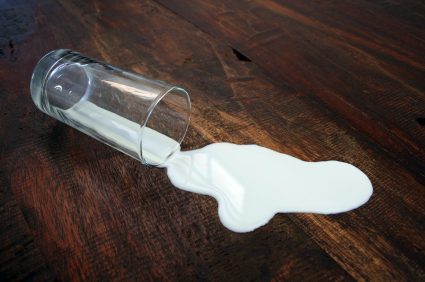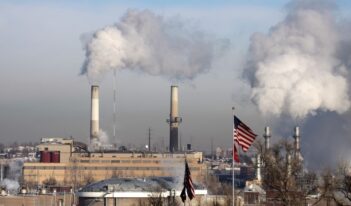
President Obama’s joke about spilled milk helps illustrate the need to understand how regulations actually work.
I may be the only one, but I’ll own up to it. I laughed at President Obama’s State of the Union pun about crying over spilled milk. Bad jokes aside, regulating is a serious business, one we need to learn to do better. Unintentionally, President Obama’s joke helps illustrate the need to understand how regulations actually work.
The butt of his joke was an Environmental Protection Agency (EPA) rule from 1973 that requires businesses to take steps to prevent oil spills. Milk contains animal oils, and the rule covers all sorts of oils: mineral, animal, and vegetable. In January, 2009, the Bush Administration formally proposed exempting spilled milk from the EPA’s rule. About a year ago, another crying-over-spilled-milk pun appeared in a Wall Street Journal editorial as Republican members of Congress urged the Obama EPA to move forward on the Bush proposal.
President Obama took pride Tuesday in reporting that his EPA did finally put the milk exemption into effect: “We got rid of one rule…that could have forced some dairy farmers to spend $10,000 a year proving that they could contain a spill – because milk was somehow classified as an oil.”
And that’s when he inserted his pun about “crying.” Pausing for groans, the President continued: “I’m confident that a farmer can contain a milk spill without a federal agency looking over his shoulder.”
What’s really funny – in another sense of the word – is how the President’s story creates a substantial misimpression of what the EPA actually did. If you thought the agency declassified milk so it’s no longer considered oil, think again. The EPA still considers milk to be an oil, a large spill of which the agency notes would “present significant risks to the environment.”
And if you thought the EPA decided farmers no longer need government to look over their shoulders, you’d be wrong again. Rather than trusting farmers, EPA trusted other regulators. It exempted dairy farms and milk plants because they are already subject to U.S. Department of Agriculture and state regulations. If milk tanks already are routinely cleaned and inspected to comply with sanitary regulations, the EPA figures that leaks and other structural damage will be discovered in the process.
The spilled milk exemption may be fully warranted, but for much different reasons than the President’s speech would suggest.
The President’s joke was off in more ways than one this past Tuesday night, but fortunately his Jobs Council had at least one thing on the mark in its report from last week. The Council called for improved regulatory analysis, including better independent reviews of “actual costs and benefits.”
The EPA’s spilled milk exemption illustrates this need. The exemption is unlikely to save even close to what the President claimed because the EPA’s murky economic estimate of annual savings included a variety of one-time or occasionally avoided expenses. In addition, the agency’s scant four-paragraph discussion of the potential health and environmental effects from the exemption was itself nothing but a joke.
Of course, real jokes about regulation are fine, even corny ones that make no one laugh except me. But improving regulation requires a substantial effort at better – more serious – research and analysis of what really is happening when government wields its regulatory authority.
This essay first appeared at Politico.com.




